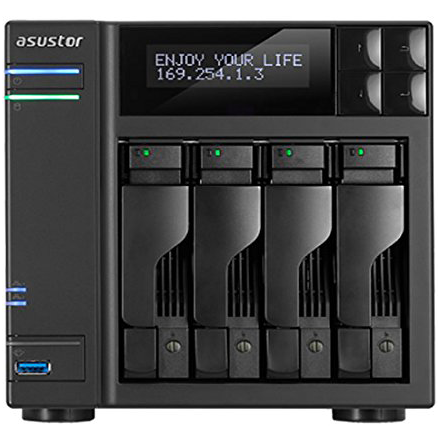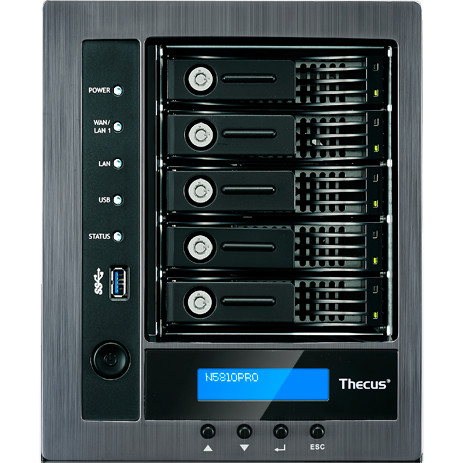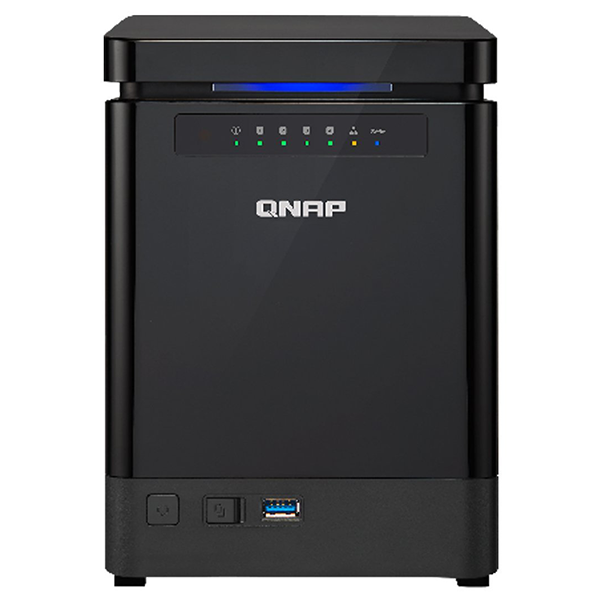QNAP TS-563 NAS Review
Why you can trust Tom's Hardware
Four-Corner Testing
Before we jump into the real-world workloads, we'll run a handful of synthetic tests. This helps us understand each product's strengths and the areas where performance could be improved.
In all but one benchmark, we linked a single gigabit Ethernet port from the device being tested to a Netgear S3300-52X 100/1000/10,000 switch. We used a Quanta MESOS CB220 server on the other end to administer the workloads. The MESOS CB220 connects to the network via 10GbE.
Sequential Performance
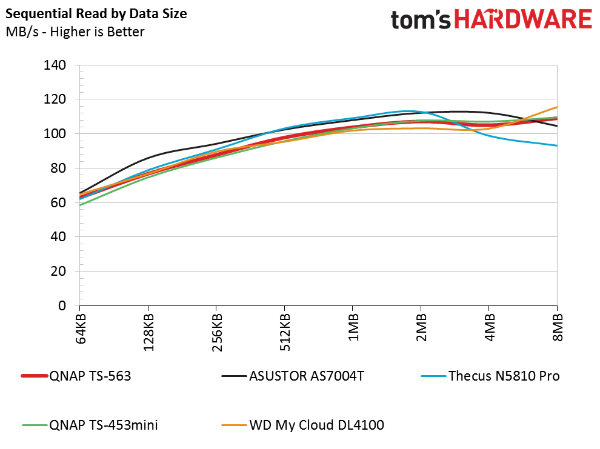
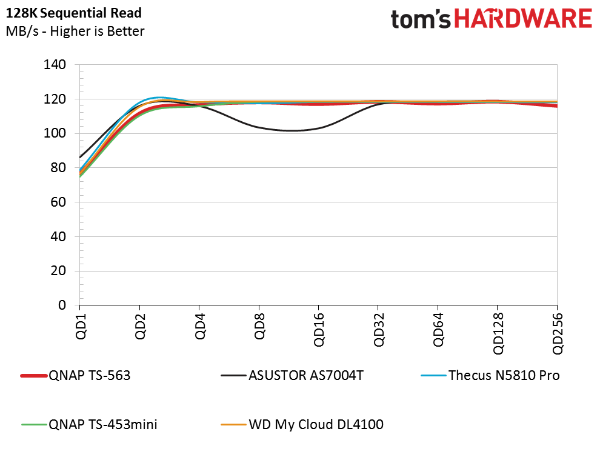
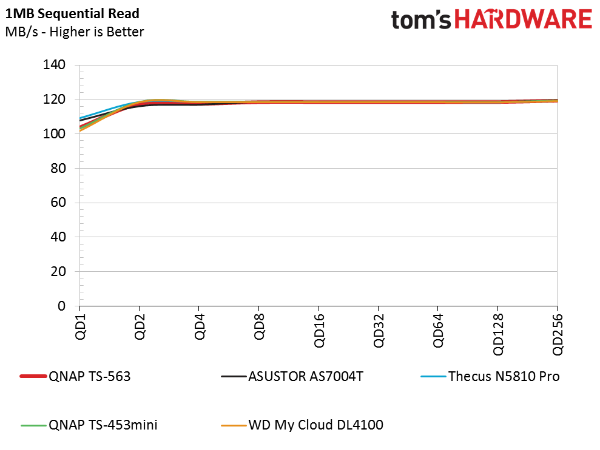
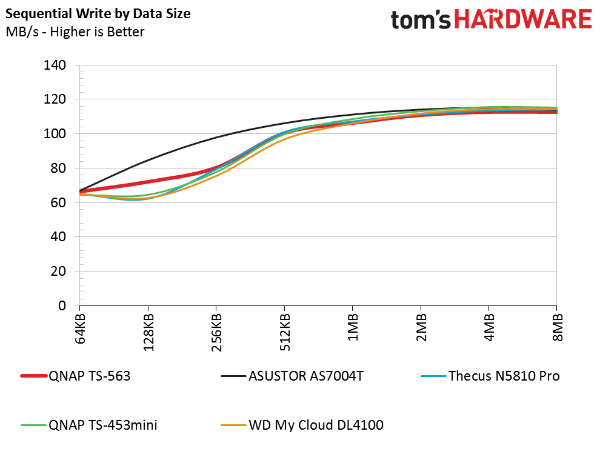
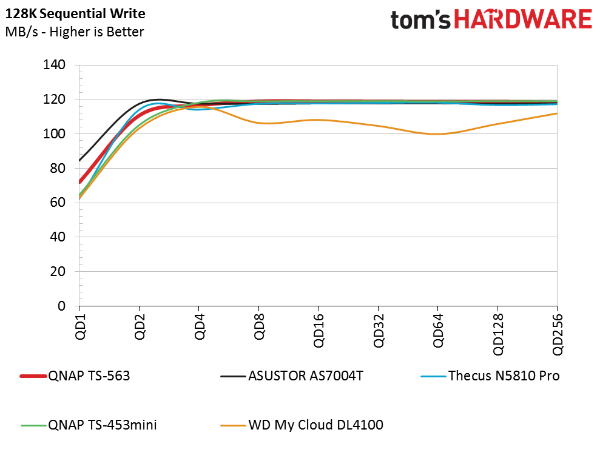
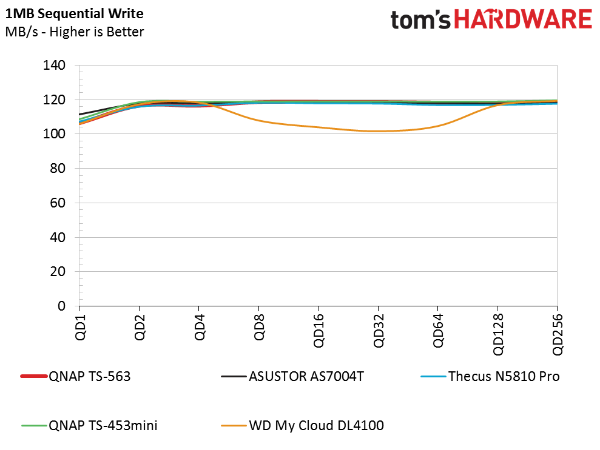
With all of tested platforms attached through a single GbE connection, performance is hampered by available network bandwidth.
The fact that appliances like these use such tightly integrated SoCs with host processing, memory control and I/O on one die, and still operate under low power ceilings is nothing short of amazing. Asustor's AS7004T employs Intel's desktop-class Core i3, giving us a good point of reference to compare more modest platforms.
Sequential Mixed Workloads
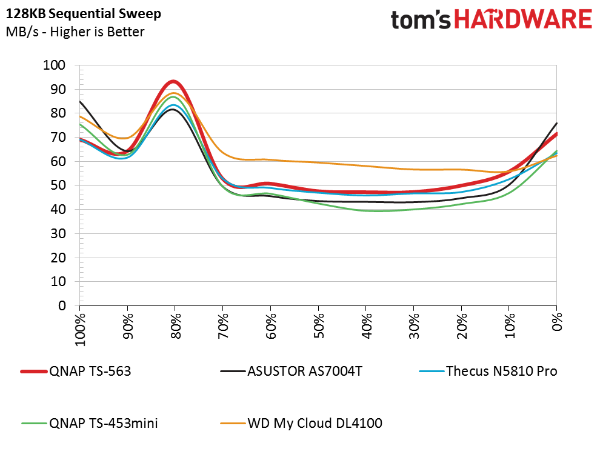
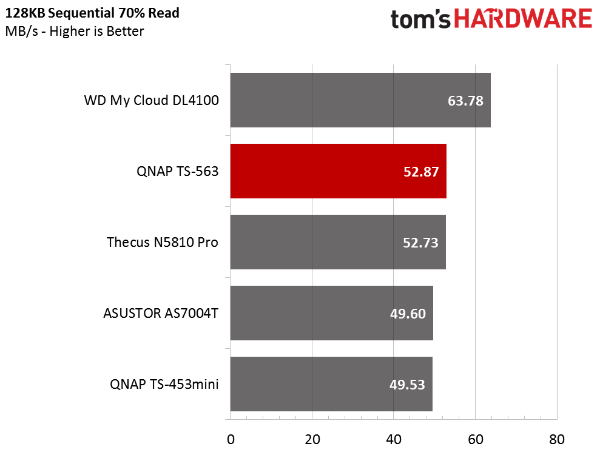
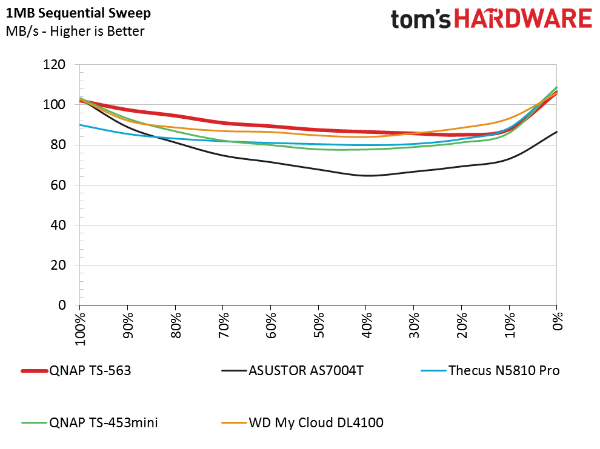
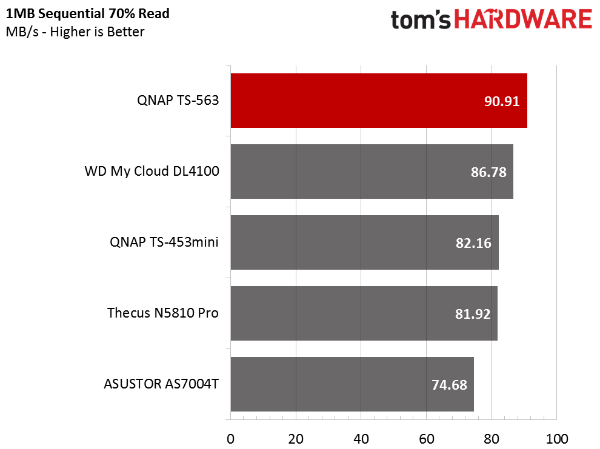
The line graphs show the percentage of read operations in each benchmark. Our results start with 100 percent reads and transition to 100 percent sequential writes. We highlight the 70 percent read/30 percent write combination specifically because it's regarded to be a mix typical of professional workstations.
Using the taxing mixed workloads, we see some separation between the products we're comparing. QNAP's TS-563 rips through these metrics with higher performance than the more expensive AS7004T.
Random Performance
The TS-563 also dominates the random read tests at low queue depths. Asustor's AS7004T picks up the pace after a queue depth of two thanks to aggressive cache algorithms. But other than the random read test at high queue depths, which the AS7004T wins, QNAP's TS-563 is faster.
Get Tom's Hardware's best news and in-depth reviews, straight to your inbox.
It also performs really well in the random data write tests, achieving performance that's higher than the other products in this discipline as well.
Random Mixed Workloads
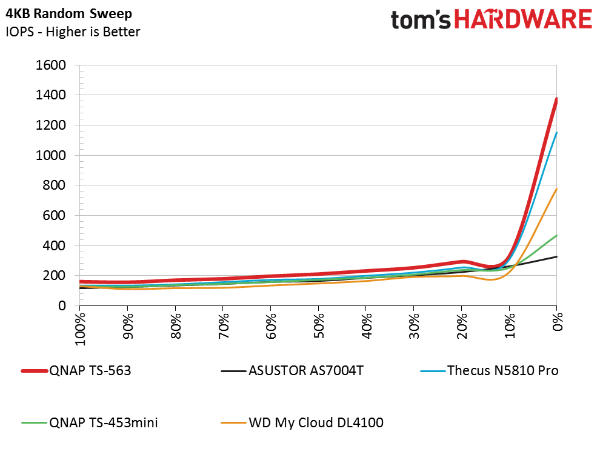
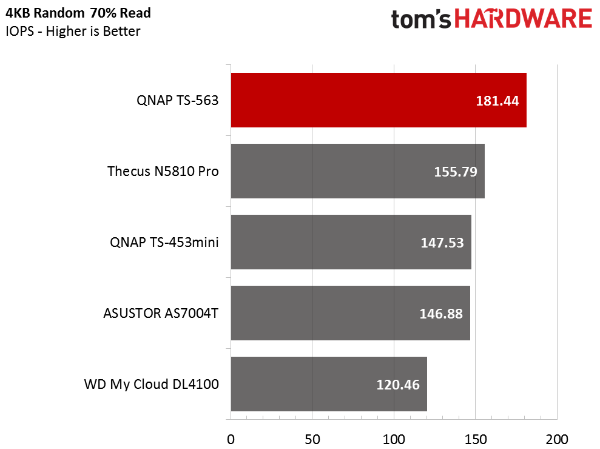
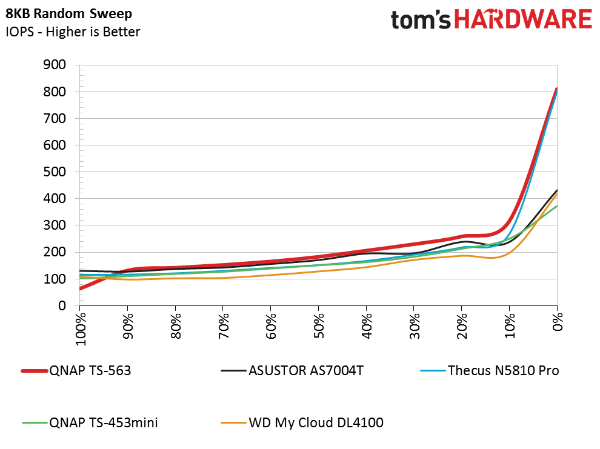
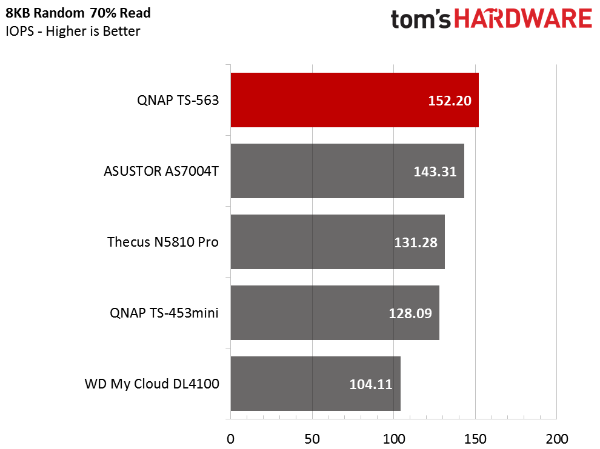
With a performance lead in both 100 percent random reads and random writes, the TS-563 also leads the other products in random mixed workloads.
Current page: Four-Corner Testing
Prev Page A Closer Look Next Page SMB, iSCSI & Standard Server Workloads
Chris Ramseyer was a senior contributing editor for Tom's Hardware. He tested and reviewed consumer storage.
-
tridon Bought a QNAP just over a month ago. Didn't find one sporting hardware from AMD, and I didn't think it would come anytime soon. Good to see that it actually performs well and isn't just the good old "cheap and slow AMD stuff". Will still be a while before I buy a new NAS though, sorry AMD. I do try to support you from time to time.Reply -
gggplaya With such a powerful SOC, can it do Movie transcoding to DLNA?? So i can easily watch things on my TV via wifi?Reply -
toadhammer Maybe I missed it, but I don't see test setup info on how you are fairly comparing 4-bay and 5-bay devices? For instance, QNAPs own 453 vs 563.Reply -
ozicom If just a memory is different between $542 to $709 seems so much difference. There should be some other features missing on the cheap one.Reply -
CRamseyer Four, five and six bay NAS are all tested in RAID 5 and with a single gigabit connection back to the network. Those systems are all grouped together and it's easy to spot overlap in the pricing as well.Reply
The only difference is the memory. -
ozicom I think 8GB model comes with more camera license or different RAID configurations or something else. Because 2x4GB SO-DIMM memory doesn't make that much difference.Reply -
getochkn If these things always use cheap SOC's and opensource software, why are they are always so much more expensive than a PC I could build that would many times faster for less. I would love a NAS, but until they are more reasonable priced, I will stick with cheaper PC's that can do more and are faster. $700 will buy you a monster CPU, way more RAM than 8GB, etc. Ya, no hot swap case, but whatever. How often do you have to swap out dead drives.Reply -
CRamseyer So what you are asking for is a free operating system, software plugins, optimizations, fast / redundant file systems and so on for little to no cost?Reply
They are not just about the hardware and support. -
Niva He has a point though. The price is high, and for people who like to tinker with old machines/cases they can build a NAS/server for their own office on the cheap that could be significantly more powerful from leftover components. These things are all running some variant of linux anyways, so don't even get us started on that.Reply
